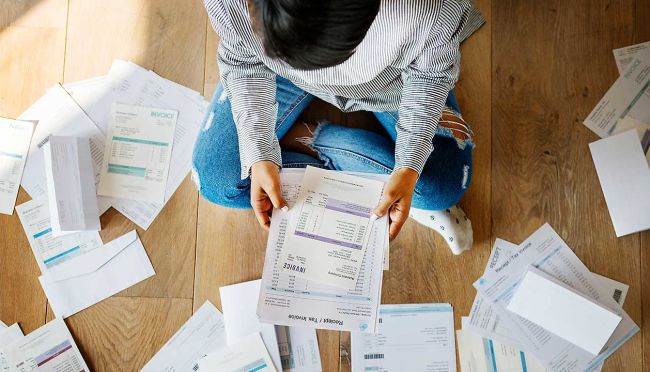Borrowing and Debt →
→

- 08 Jun 2020
- Working Paper Summaries
Loan Types and the Bank Lending Channel
Practitioners commonly refer to four distinct loan types: asset-based loans, cash flow loans, trade financing, and leasing. It is important to account for these differences in loan type in order to analyze the economic significance of credit market disruptions.

- 27 Apr 2020
- Working Paper Summaries
Corporate Leadership and Creditor Recovery Rates: Evidence from Executive Gender
This paper examines the relationship between executive gender and creditor recovery rates, showing that creditors to female-run firms have higher recovery rates in the event of default.

- 14 Oct 2019
- Working Paper Summaries
Undisclosed Debt Sustainability
Presenting a scenario in which non-Paris Club lending and borrowing is fully disclosed, this study illustrates that transparency has potential effects of decreased debt sustainability for investors such as China, and significant welfare gains for recipient countries. Effects are particularly strong if the debt is large.

- 22 May 2019
- Research & Ideas
Forgiving Student Loan Debt Leads to Better Jobs, Stronger Consumers
Without the burden of student loan debt, people seek higher-paying careers, stabilize their finances, and contribute to the economy, says Marco Di Maggio. Open for comment; 0 Comments.
- 01 Apr 2019
- What Do You Think?
Does Our Bias Against Federal Deficits Need Rethinking?
SUMMING UP. Readers lined up to comment on James Heskett's question on whether federal deficit spending as supported by Modern Monetary Theory is good or evil. Open for comment; 0 Comments.

- 22 Feb 2018
- Working Paper Summaries
Debt Traps? Market Vendors and Moneylender Debt in India and the Philippines
Small-scale entrepreneurs throughout the developing world often rely on moneylenders for working capital but at exorbitant interest rates. Results of three experiments involving market vendors in India and the Philippines show the difficulty that small-scale entrepreneurs face in escaping usage of moneylender debt.

- 15 Sep 2017
- Working Paper Summaries
Debt Redemption and Reserve Accumulation
This study examines how reserve accumulation affects governments’ decisions to default. The analysis assumes that countries can accumulate reserves and borrow internationally using their own currency. Results suggest that the optimal level of international reserves is fairly large because their cost is mitigated by valuation-smoothing gains. The model matches some features of Brazil’s economic fluctuations.

- 30 May 2017
- Working Paper Summaries
Lessons Unlearned? Corporate Debt in Emerging Markets
Emerging markets are contending with a worrisome slowdown in economic growth accompanied by the build-up of corporate debt. Understanding this and other potential vulnerabilities requires knowing more about the state of emerging market corporate balance sheets, the drivers of debt accumulation, and the effects of both on the macroeconomy.

- 07 Oct 2016
- Working Paper Summaries
Sovereign Debt Portfolios, Bond Risks, and the Credibility of Monetary Policy
This paper explains the relation between sovereign debt portfolios and government bond risks across countries. It demonstrates how the interaction of lender risk aversion and monetary credibility can explain why countries with positive bond-stock betas have the lowest local currency debt share. The framework gives rise to testable predictions on inflation, inflation cyclicality, sovereign debt portfolios, and proxies of effective monetary policy credibility, which the authors verify in the data. Overall, the study contributes to and builds upon the literature of government debt asset pricing.

- 01 Aug 2016
- Working Paper Summaries
The Costs of Sovereign Default: Evidence from Argentina
For several decades, one of the most important questions in international macroeconomics has been “why do governments repay their debts?” This study provides evidence that a sovereign default significantly reduces the value of domestic firms. Foreign-owned firms, exporters, banks, and large firms are particularly hurt more by increases in the probability of sovereign default.

- 27 Jun 2016
- Working Paper Summaries
Fiscal Rules and Sovereign Default
As they catch up to developed ones, emerging countries tend to overborrow and often default on their debt. This study by Laura Alfaro and Fabio Kanczuk analyzes the welfare gains from alternative fiscal rules, finding the gains economically important. What is more, a simple, easily contractible threshold rule can generate gains virtually as high as the optimal rule.

'Repayment-by-Purchase' Helps Consumers to Reduce Credit Card Debt
Many consumers fail to pay off credit card debt each month and suffer financial consequences. Repayment-by-purchase, allocating payment toward specific purchases on a credit card bill, helps consumers gain a sense of progress and control over credit card debt.